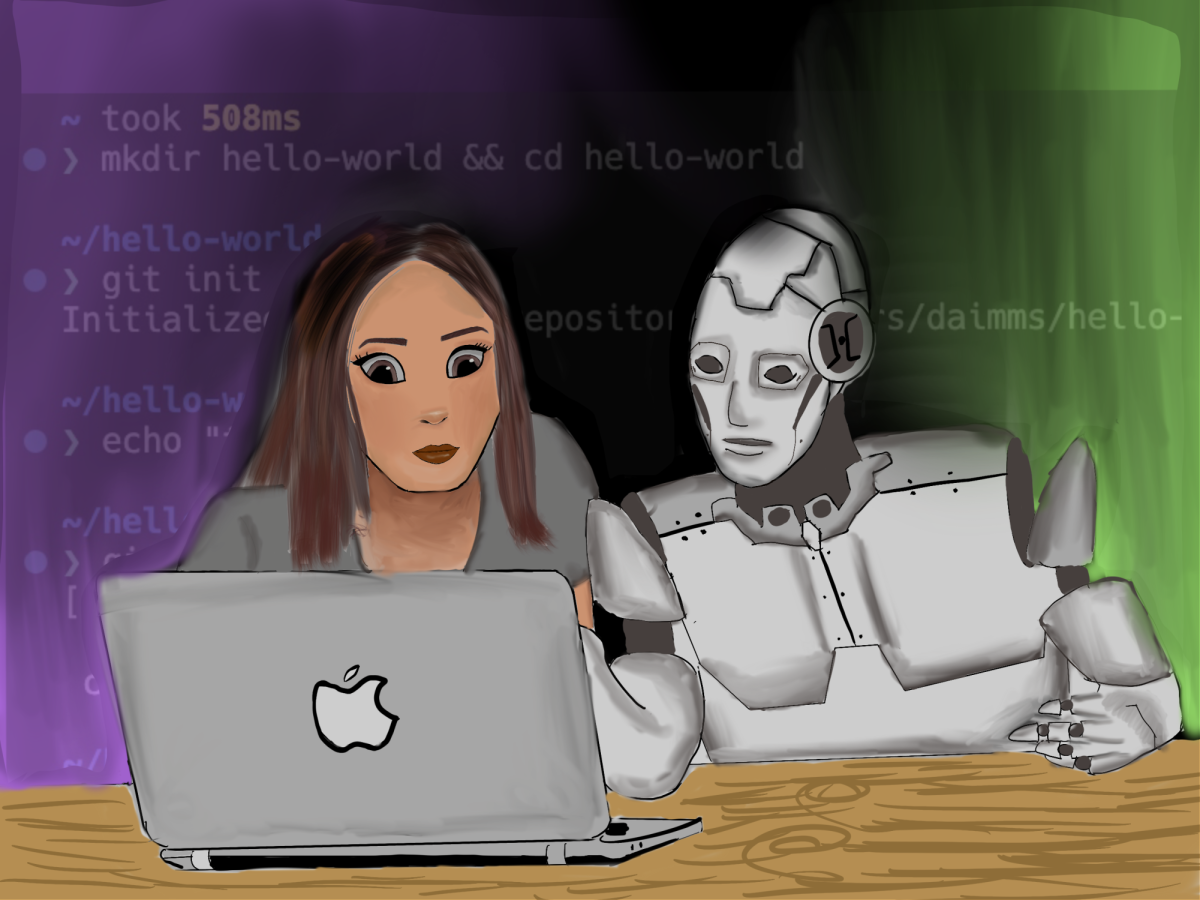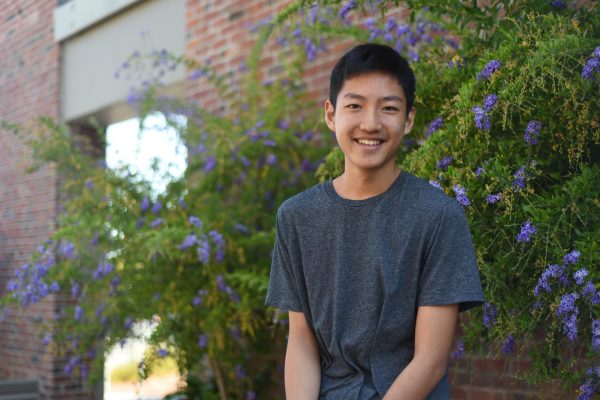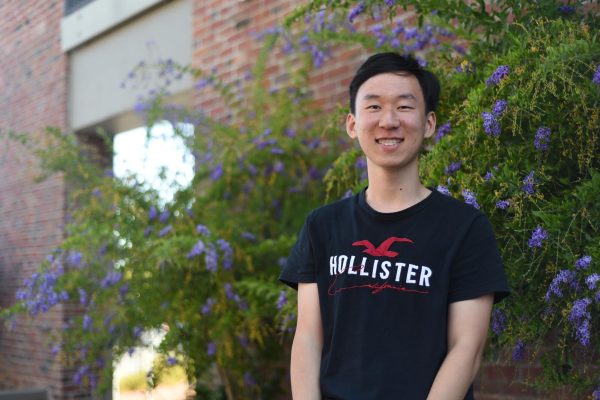FUHSD established an Artificial Intelligence Task Force in spring of 2023 to address the ambiguity of the place of ChatGPT and other AI in education. Associate Superintendent Tom Avvakumovits and Educational Technology Coordinator Menko Johnson believed it was necessary to create a task force comprised of teachers and administrators to examine the potential benefits and shortcomings of AI in education.
Avvakumovits says the overall consensus of the task force’s first meeting on May 18, 2023, was that teachers needed clearer conditions for AI usage before the start of the 2023-24 school year. According to Avvakumovits, one example included a student who used ChatGPT for only part of their assignment during the second semester and then added more to the AI’s work, blurring the lines of violating the academic honesty policy.
“Artificial intelligence moves a lot faster than anyone in education [can] keep up,”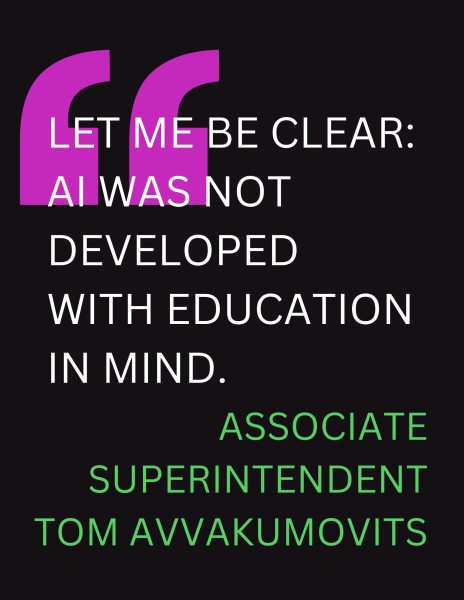 Avvakumovits said. “What I’m trying to do is develop a thoughtful — not a knee jerk response — because there are a lot of emotions around the use of AI. Let me be clear: AI was not developed with education in mind.”
Avvakumovits said. “What I’m trying to do is develop a thoughtful — not a knee jerk response — because there are a lot of emotions around the use of AI. Let me be clear: AI was not developed with education in mind.”
Johnson facilitated professional development for staff at MVHS on Thursday, Aug. 17 to spark conversation about how teachers could implement AI into their classroom, especially those who believed ChatGPT should be avoided at all costs. He outlined three types of AI policies in his presentation: none, targeted usage and usage with disclosure.
Targeted usage refers to a system where students can use simple grammar-checking tools but are not permitted to use AI unless otherwise specified. Usage with disclosure indicates that students are permitted to use AI to gather information and revise but are required to write a statement explaining how they used AI.
“What if I took my first draft and I put it into ChatGPT and said ‘help me change the phrasing of this’, or ‘help me formulate a better argument or give me some advice,’” Johnson said. “Is that cheating?”
One of the suggestions the professional development had was for teachers to shift traditional take-home summatives to in-class writing and discussions and to be more clear on their greensheets about AI policies for students to understand expectations. Johnson advised teachers to download the Chrome extension Draftback, to utilize Turnitin.com’s AI tool and to have students turn in assignments on Google Drive, where there is version history, to more accurately detect AI-generated text. Still, Johnson recognizes that ChatGPT can serve as a tool for students to use — with some skepticism in mind — to explain specific concepts when friends and teachers are unavailable.
Both Johnson and Avvakumovits believe teachers have the freedom to choose their own policy around AI — whether they would like to ban it in their class or allow students to use it to some extent. Johnson admits that ChatGPT in some ways is not meant as a learning tool, but as a tool to simply produce a product when skill-building is not necessary, such as outlining or improving letters of recommendation for students which take a significant amount of time.
“[Writing a recommendation letter for college] is very different than if you are writing an essay in class to demonstrate your skill in writing, because [teachers are] evaluating you directly on that skill,” Johnson said. “[By] using ChatGPT to do that, you are bypassing that learning because [writing is] not just a product [but] a process that you’re doing.”
Computer Science teacher David Greenstein is one such teacher who allows ChatGPT to be used in his class for debugging code and for generating ideas to write computer programs — aspects he says are what ChatGPT does best. ChatGPT can generate code for students, but Greenstein prohibits students from using it to write computer programs since students may not be able to understand what ChatGPT’s code does, partly due to ChatGPT’s shortcoming of not providing specific names for computer variables and methods, taking away from the learning experience. However, Greenstein admits that he cannot fully prevent students from accessing ChatGPT.
“[Oftentimes], it doesn’t look like a person wrote [the code], it looks like a machine wrote it,” Greenstein said. “[Students] would have to modify it so that it will look like theirs. If they’re going to put in that much effort to make it look like theirs, then I don’t have a problem with that.”
On the other hand, Government teacher Benjamin Recktenwald opposes the use of AI in a classroom setting. He was already using handwritten assignments for his class, so minimal changes were needed to be made to the syllabus. According to Recktenwald, AI should not be used for learning purposes since it defeats the purpose of skill development.
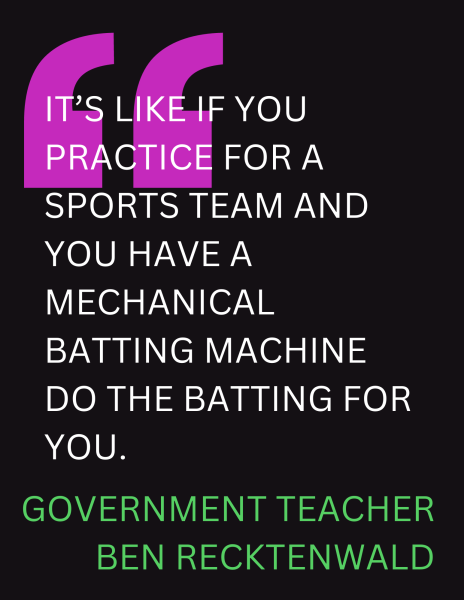 “The whole point of practice is for you to do it,” Recktenwald said. “It’s like if you practice for a sports team and you have a mechanical batting machine do the batting for you. When you get to bat you’re going to be terrible. There’s no point in doing it.”
“The whole point of practice is for you to do it,” Recktenwald said. “It’s like if you practice for a sports team and you have a mechanical batting machine do the batting for you. When you get to bat you’re going to be terrible. There’s no point in doing it.”
One of the methods Johnson recommends for teachers in order to mitigate AI’s effects is to focus on the students’ learning process through formative assignments rather than a final summative. Johnson says this emphasizes skill development for students, instead of solely evaluating the final product, giving students time to show what they have learned in class. Recktenwald says his Government classes are already “process-based,” where students learn how to compare and contrast documents over time through formatives. He says his class would not be affected by AI as much.
A number of MVHS staff share Reckenwald’s sentiment. For instance, last December after MVHS English teachers discussed the impact of ChatGPT writing assignments and gave ChatGPT real prompts used in MVHS literature courses, the English teachers agreed that they would not give those AI-generated essays good grades.
Conversely, Johnson said in an email that some teachers, such as a Homestead High School teacher whom he did professional development with, could not discern between ChatGPT and student’s writing. He said only skilled writers could write better than ChatGPT. Johnson added that AI will improve its capabilities in the near future in disciplines not limited to just writing.
“AI is going to evolve and get better quickly,” Johnson said in an email. “What may be true today may not be true later this year or next [year]. I think as we try to be reductionist with this problem, it becomes more complex instead of less.”
Avvakumovits says that it will take some time for AI to be turned into an actual tool that students can regularly and ethically use and admits that there still are unanswered questions about its place in education.
“There are times where once you’ve demonstrated mastery of the skill, you can use AI as a shortcut that doesn’t get in the way of learning,” Avvakumovits said. “We’re going to have to redefine [what] we call cheating, how we can use [AI] as a tool and when it’s appropriate.”




